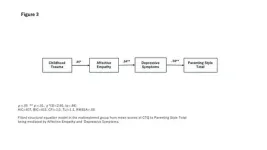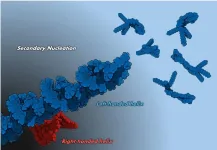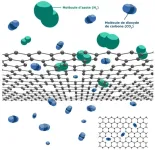Childhood maltreatment (CM) is a complex issue that is often passed on through generations. Studies have shown that parents who were abused as children may perpetuate a similar pattern of mistreating their children, creating a vicious cycle of abuse. A key factor in perpetuating this cycle is impaired empathy in parents who grew up in abusive environments. Simply put, parental empathy, the ability to understand and respond to children’s emotions, plays a critical role in effective parenting. In fact, children who experience abuse tend to have reduced empathy by the age of eight. This lack of empathy can persist into adulthood, making it difficult for them to provide the care and emotional support their children need, thus increasing the risk of CM.
Now, a recent study led by researchers from the University of Fukui, Japan, provides new insights into this complex issue. Published in Volume 15 in Scientific Reports on March 5, 2025, the study compared mothers who engage in maltreatment with those who do not, examining how their experiences of CM impact their ability to empathize, manage stress, and raise their children. Their findings highlight possible ways to break the cycle of abuse through targeted interventions. This research was conducted by Graduate Student Yuko Kawaguchi along with Assistant Professor Shota Nishitani, Associate Professor Takashi X. Fujisawa, and Professor Akemi Tomoda from the University of Fukui, Japan.
Speaking to us about the rationale behind this study, Kawaguchi says, “We aimed to not only determine whether mothers engaged in CM in a simplistic ‘either/or’ manner but also to understand the act of maltreatment from a more nuanced, spectrum-based perspective.”
With this in mind, the researchers conducted path analysis, a statistical technique that maps and tests relationships between multiple variables. They compared 13 mothers who had experienced childhood abuse and engaged in maltreatment with a control group of 42 mothers who had no such history, examining how factors such as CM, empathy, and depressive symptoms influence parenting styles in both groups.
The researchers used a combination of psychological assessments and physiological measures to evaluate these factors. CM was assessed using the Adverse Childhood Experiences (ACE) questionnaire and the Childhood Trauma Questionnaire (CTQ). Empathy was measured using the Interpersonal Reactivity Index (IRI), depressive symptoms were evaluated with the Self-Rating Depression Scale (SDS), and parenting styles were assessed using the Parenting Scale (PS).
The analysis revealed significant differences between the two groups. Mothers who had experienced CM scored higher on measures of childhood trauma, including physical, emotional, and sexual abuse, as well as neglect. These factors, in turn, increased their risk of engaging in CM. Moreover, the researchers observed a significant positive correlation between the total CTQ score and affective empathy (IRI measure) and between affective empathy, particularly personal distress, and depressive symptoms (SDS score). These findings suggest that CM indirectly increases the risk of abusive parenting by influencing the mothers’ emotional empathy and mental health.
Furthermore, parents who experienced CM themselves were more likely to feel overwhelmed by their children’s emotions, making them prone to depressive symptoms and increasing their risk of engaging in maltreatment, thereby perpetuating the cycle of intergenerational abuse.
“Our research reveals that a history of abuse enhances emotional empathy, which in turn, influences parenting through its impact on depression,” says Kawaguchi, while elaborating on the findings. “By addressing emotional empathy and depression, we can help break this cycle and prevent maltreatment from being passed down to the next generation,” she adds. Interventions to achieve this can include mental health support to mothers who have experienced CM and parenting programs that help mothers manage their emotional empathy effectively.
Moving forward, integrating insights from this study into parenting education, child welfare, and mental health interventions can foster healthier and more positive parent-child relationships.
***
Reference
Title of original paper: Effects of childhood maltreatment on mothers’ empathy and parenting styles in intergenerational transmission
Journal: Scientific Reports
DOI: 10.1038/s41598-025-92804-0
About University of Fukui, Japan
The University of Fukui is a preeminent research institution with robust undergraduate and graduate schools focusing on education, medical and science, engineering, and global and community studies. The university conducts cutting-edge research and strives to nurture human resources capable of contributing to society on the local, national, and global level.
Website: https://www.u-fukui.ac.jp/eng/
About Yuko Kawaguchi from University of Fukui, Japan
Yuko Kawaguchi is a Graduate Student associated with the Division of Developmental Higher Brain Functions, United Graduate School of Child Development, Osaka University, Kanazawa University, Hamamatsu University School of Medicine, Chiba University, and the University of Fukui. Her research explores the intergenerational transmission of trauma, specifically examining the effects of childhood maltreatment on mothers’ empathy and parenting styles.
Funding information
All phases of this study were supported by AMED (20gk0110052, AT and SN), JSPS KAKENHI Scientific Research (A) (19H00617 and 22H00492, AT), (C) 22K02432 (SK and SN), and University of Fukui Research Farm Firm, University of Fukui (SK), a research grant from the Strategic Budget to Realize University Missions (AT), a Grant-in-Aid for Translational Research from the Life Science Innovation Center, University of Fukui (AT).
END





